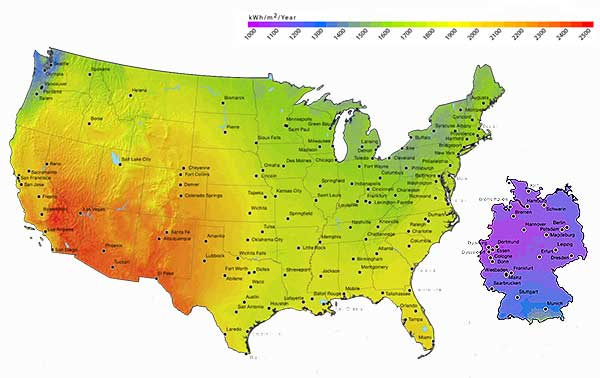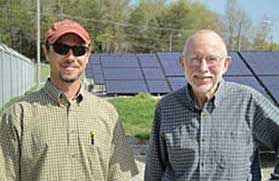Posts Tagged ‘Electric Utilities’
Federal Court Orders EPA to Move Forward on Coal Ash Regulations
FOR IMMEDIATE RELEASE Washington, D.C. – A federal judge agreed with environmental and public health groups that the Environmental Protection Agency needs to set federal regulations for the safe and proper disposal of toxic coal ash. A copy of the judge’s order can be found here: http://earthjustice.org/sites/default/files/files/RCRA_NOI_Order.pdf The groups filed the lawsuit in April 2012…
Read MoreA Pressing Matter: Facing the Utility Death Spiral
The most recent issue of The Appalachian Voice includes a story about distributed energy generation, especially rooftop solar, and the ways communities, nonprofits and entrepreneurs are helping each other democratize the grid. But as they do, we’re seeing just how much old-school utilities are entrenched in old-school models that, while a bit dated, are still…
Read MoreHitting the Road to Promote New Power for the Old Dominion
Starting today, Appalachian Voices and the Wise Energy for Virginia coalition are embarking on a statewide road tour to promote New Power for the Old Dominion, a commonsense campaign to change the direction of Virginia’s energy future. Our events in Richmond and Charlottesville this week are the first stops on our tour where we’ll lay…
Read MoreReport Tracks the Erosion of Coal’s Energy Dominance
By Nolen Nychay Editorial intern, Fall 2013 A report from Goldman Sachs’ commodities research team predicts a decline in global coal production as a result of decreasing demand. While coal-fired electricity still accounts for 36 percent of international electricity generation, according to the report, emerging global trends are predictive of a lower dependence on coal-produced…
Read MoreUSDA Finds Energy Efficiency Has No Significant Environmental Impact
On August 16, the U.S. Department of Agriculture’s Rural Utilities Service published a Finding of No Significant Impact (FONSI) on the environment by implementing the Rural Utilities Service’s soon-to-be-finalized Energy Efficiency and Conservation Loan Program (EECLP). The EECLP is a proposed federal loan program that would offer low-interest loans to rural electric cooperatives to develop…
Read MoreThe Public’s Reaction to NC’s Proposed Settlement with Duke Energy: NNNNNO!
You can read The Charlotte Observer article, but the upshot is that the public strongly denounced the state’s proposed “do-nothing” settlement. Almost 5,000 people submitted comments, almost all saying that the settlement doesn’t go far enough to ensuring our water is safe from coal ash waste. So basically, the public reaction’s was…. And I can…
Read MoreAlmost Always Sunny in Appalachia
Whether through a power plant or from the home, solar energy’s future is bright By Matt Grimley In a meeting earlier this year with U.S. Department of Energy employees, the secretary of energy was blunt about solar power. “I would argue that the scale and time frame of the impact of solar technology is underestimated,”…
Read MoreSolar Leasing: Crediting Electric Bills with the Sun
By Davis Wax Energy distribution for the people, by the people. That was the founding principle of electric cooperatives and municipal utilities as they sprang up in the United States throughout the twentieth century. Today, any profits made by these member- or city-owned utilities go back into infrastructure, operation, or payments towards their member-investors. Seldom…
Read MoreHelp Update Our Retro Wastewater Standards on July 9th
By Jessie Mehrhoff Mountaintop Removal Campaign intern, Summer 2013 Each year, coal-fired power plants dump 80,000 pounds of arsenic, 65,000 pounds of lead, and 3,000 pounds of mercury into U.S. waterways. More than 23,000 miles of America’s rivers have been sullied due to the lack of pollution standards for wastewater discharged from power plants. On…
Read MoreNeedle in a Haystack: U.S. Senate Supports Lower Energy Costs for Rural America, will the House Follow Suit?
On June 11, the U.S. Senate passed a five-year Farm Bill that includes a small provision with significant potential for reducing energy costs for rural Americans. The Rural Energy Savings Program (RESP) — based on South Carolina’s successful “Help My House” program and first introduced in 2012 as a stand-alone bill — would authorize the…
Read More

